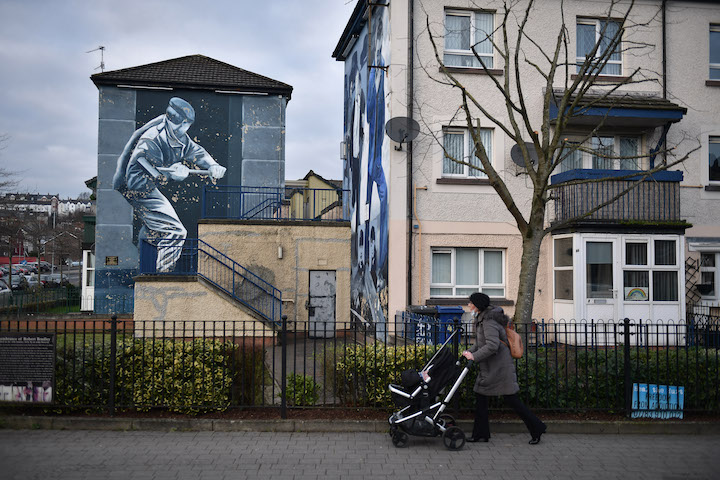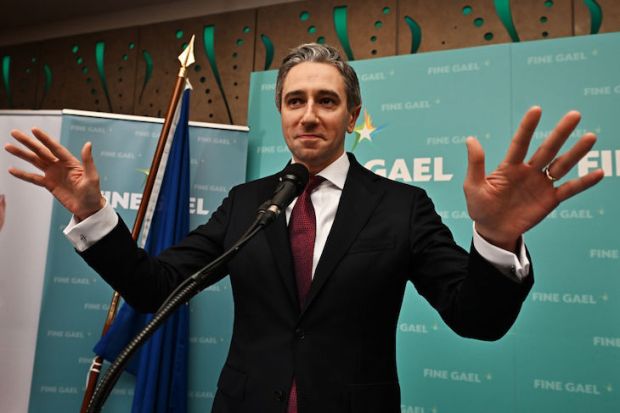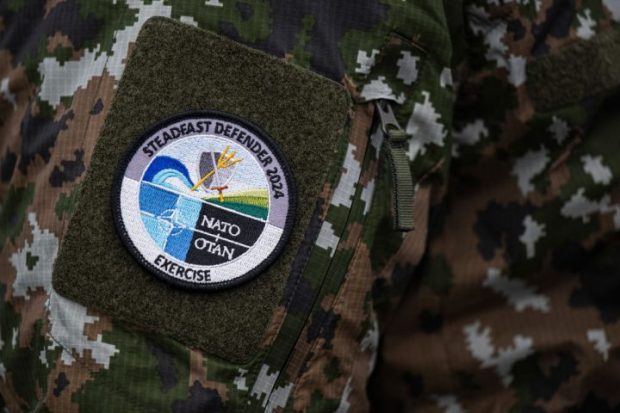Northern Ireland is a few weeks out from a Davos-style gathering of the great and the good to mark 25 years since the signing of the Belfast Agreement. The Clintons will be in town, Joe Biden will be there to presumably tell some folksy, paddywhacking wisecrack and Tony Blair might even feel the familiar touch of the hand of history upon his shoulder.
Unhelpful, then, that the real world is deciding to intrude. Outside the backslapping get-togethers planned at venues such as Queen’s University in Belfast, villains still roam the streets and backroads of Ulster.
After an attack on a police patrol in Strabane by dissident republicans in November and the attempted murder of Deputy Chief Inspector John Caldwell in Omagh last month, the security forces have raised the terror threat level in Northern Ireland from substantial to severe – meaning that they believe an attack is highly likely. Elsewhere, an ongoing feud between rival branches of the Ulster Defence Association (allegedly due to a turf war over drug dealing), has led to a series of arrests after a spate of arson attacks in the North Down area.
The Good Friday Agreement froze the divisions of the past in aspic without addressing the underlying factors which drive division
There will be plenty solemn talk about this in Belfast in a few weeks’ time among the blow-ins from Washington and London and the professional peace-processors from various NGOs which have mushroomed since 1998. With a rising threat level mixed in with the ongoing back and forth over the Windsor Framework, expect stern finger-wagging about the need to tend to the ‘imperfect peace’ supposedly enjoyed in Northern Ireland today.
What happens once the bandwagon rolls on? Not much, is the answer. These occasional reminders from the grey-haired doyens of the global speaking circuit are thin gruel; it is grimly fitting that weeks before they arrive in Belfast, the hollow lines they will take about transformation have already been hauled under water by a rising terrorist threat, proven by a police officer lying, critically injured, in hospital.
It would be churlish to suggest Northern Ireland has not changed in the 25 years since the Agreement. Yes, the quantity of bullets fired or bombs detonated has diminished, but is that sort of ‘imperfect peace’ the ceiling of ambition?
And is an Agreement really a success when dissident republicans are still able to operate with impunity? An alphabet soup of loyalist organisations continues to exert an undue and pernicious influence over communities across the province. Beyond the action of the men of violence, 93 per cent of Northern Irish pupils are still segregated by religion – the same level as in 1998, when the Agreement was signed.
Tackling paramilitarism requires a multi-faceted response. In many ways, the British state has long abrogated responsibility on this front; from the original act of prisoner releases to grease the wheels of the peace process to the rolling programme of funding which has been sent the way of paramilitary adjacent organisations since 1998, this lackadaisical approach has allowed these groups to remain embedded in both nationalist and loyalist communities.
Allied to a less than pugnacious security response which has failed to take the fight to republican dissidents, they have been able to linger on the margins and strike out in the way that they have in recent months. The less said about the softly, softly approach to organised crime conducted by loyalists, the better.
Tangible action is necessary, but key to all of this is grinding down the engrained sectarianism which fuels the fire which leads to someone firing bullets into a police officer in front of his son after football practice. No amount of cash chucked at the peace process seems to be able to remove the barriers in the mind which persist amongst many members of Northern Irish society.
So would it not be wise to look at whether things can be done better? The Good Friday Agreement, in many ways, froze the divisions of the past in aspic without addressing the underlying factors which drive division; mandatory coalition at Stormont, segregated schooling along religious lines and the casual acceptance of terrorist apologia in the public and political realm all play their part in sustaining this adversarial way of life.
Given the cottage peace process industry it sustains, criticising the Belfast Agreement is often viewed by many as secular sacrilege. Yet the so-called peace dividend remains too unevenly spread for it to be viewed as a success. If the dysfunction of the present is the summit of ambition for those coming to praise the Agreement, then it is worth asking if Northern Ireland was ever genuinely well-served by those who claim to care so much about it?
Got something to add? Join the discussion and comment below.
Get 10 issues for just $10
Subscribe to The Spectator Australia today for the next 10 magazine issues, plus full online access, for just $10.




















Comments
Don't miss out
Join the conversation with other Spectator Australia readers. Subscribe to leave a comment.
SUBSCRIBEAlready a subscriber? Log in